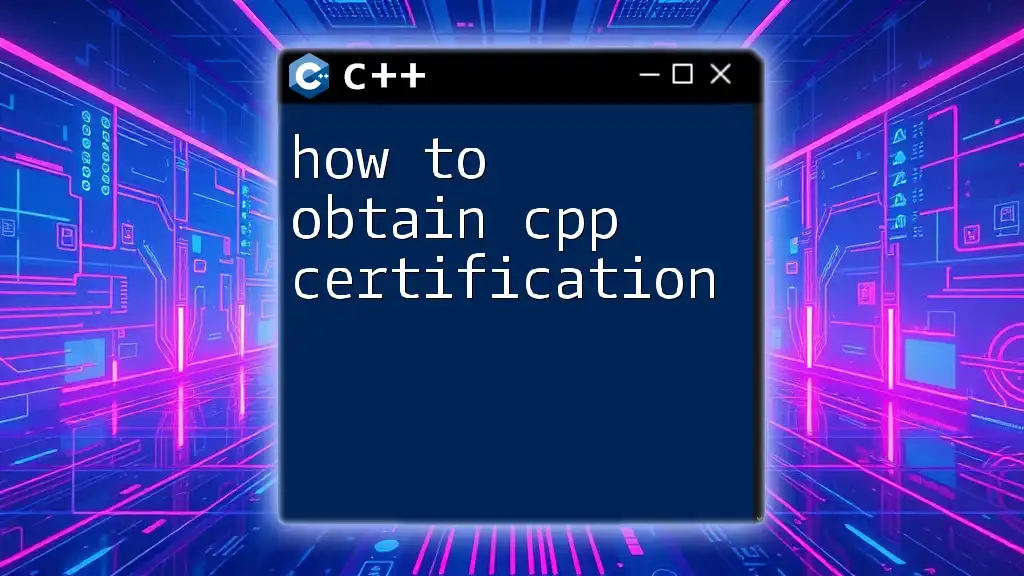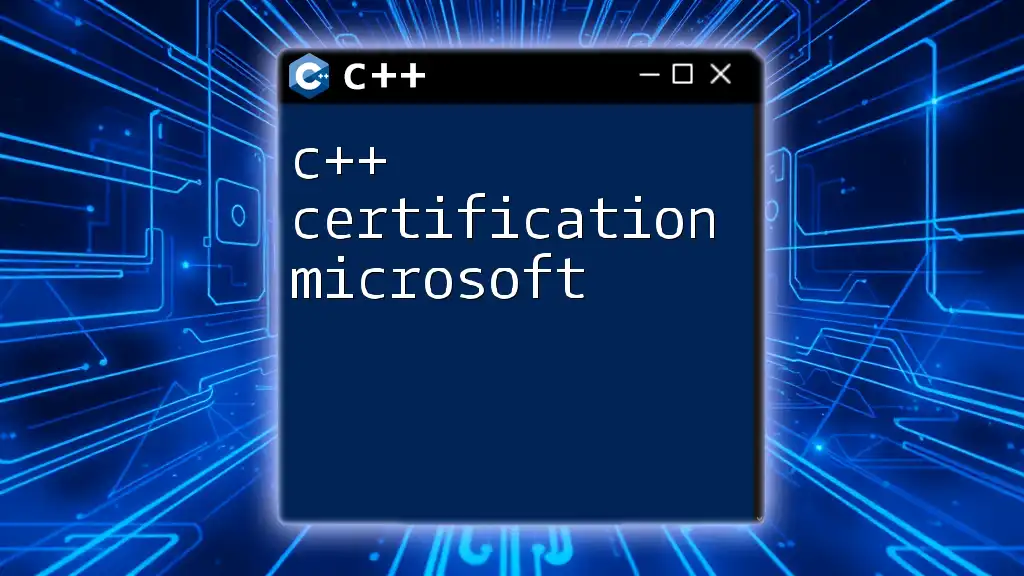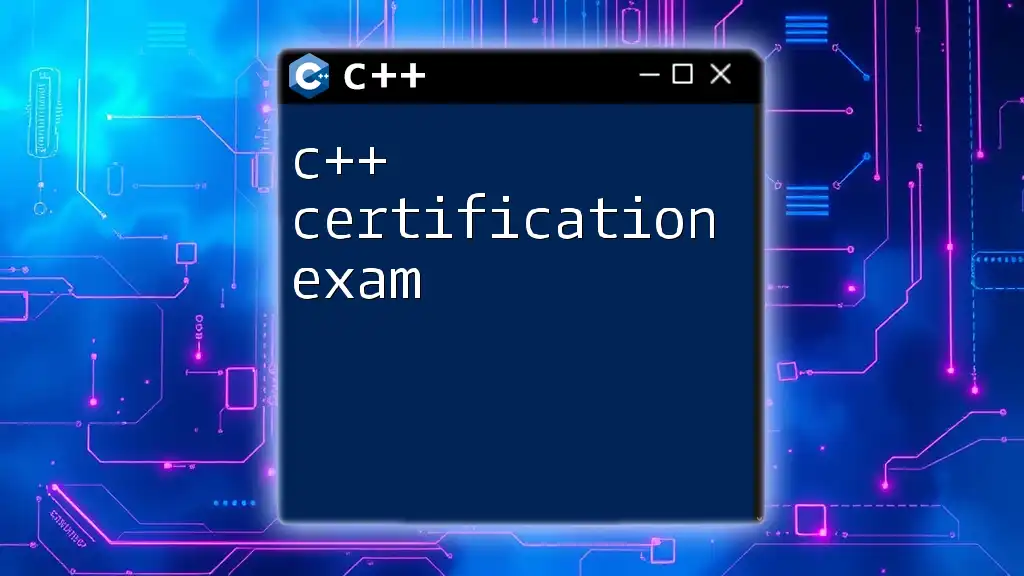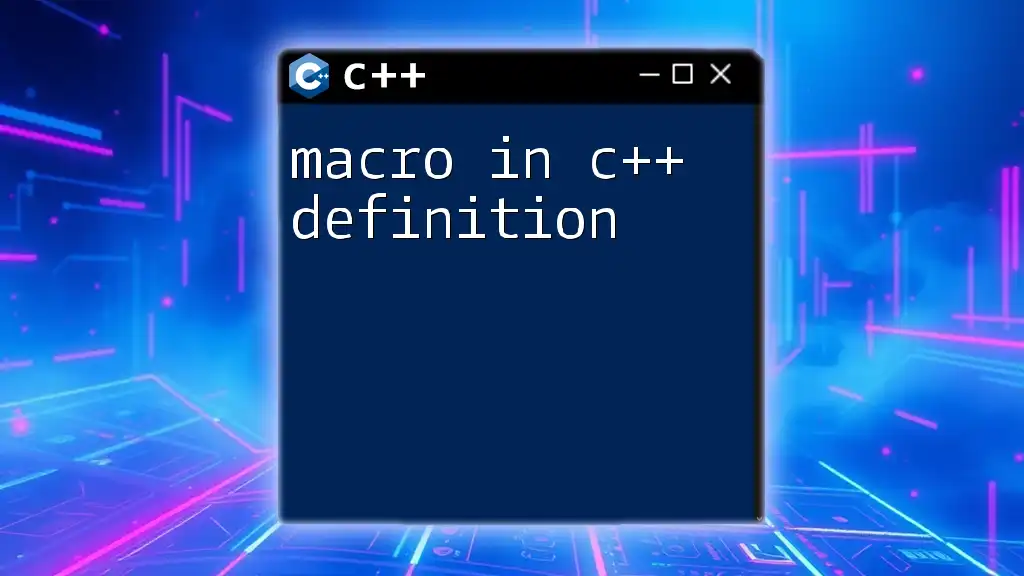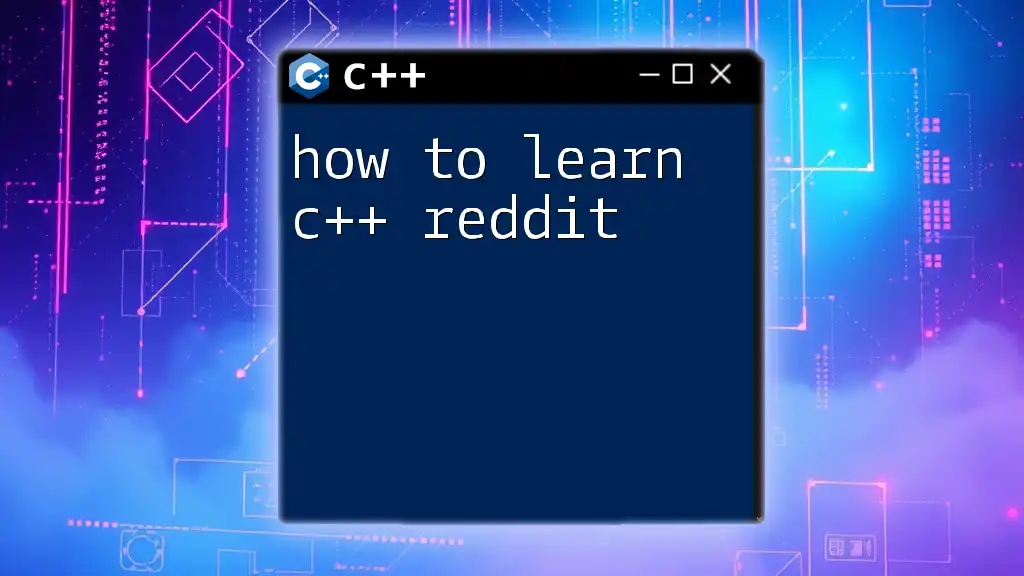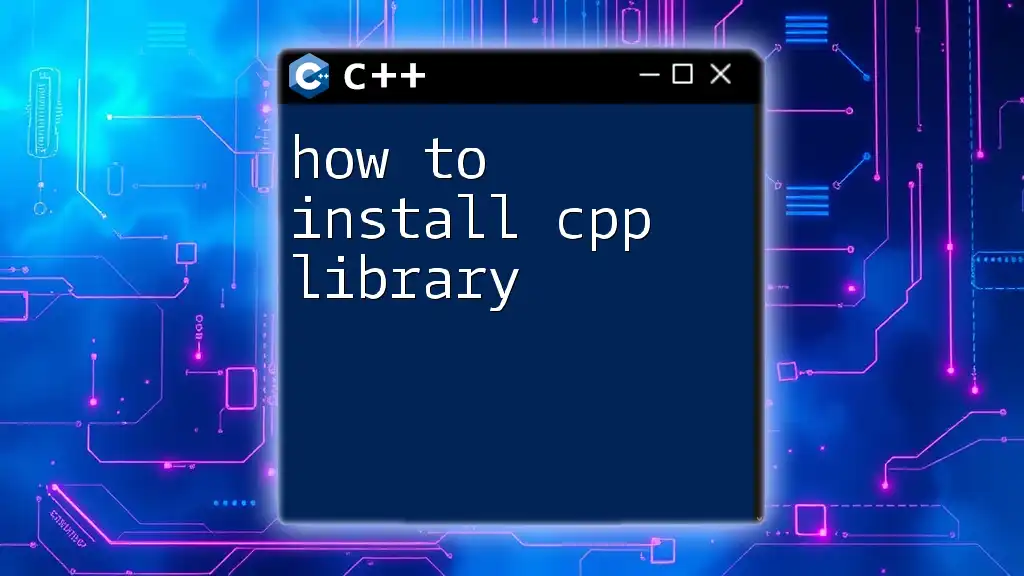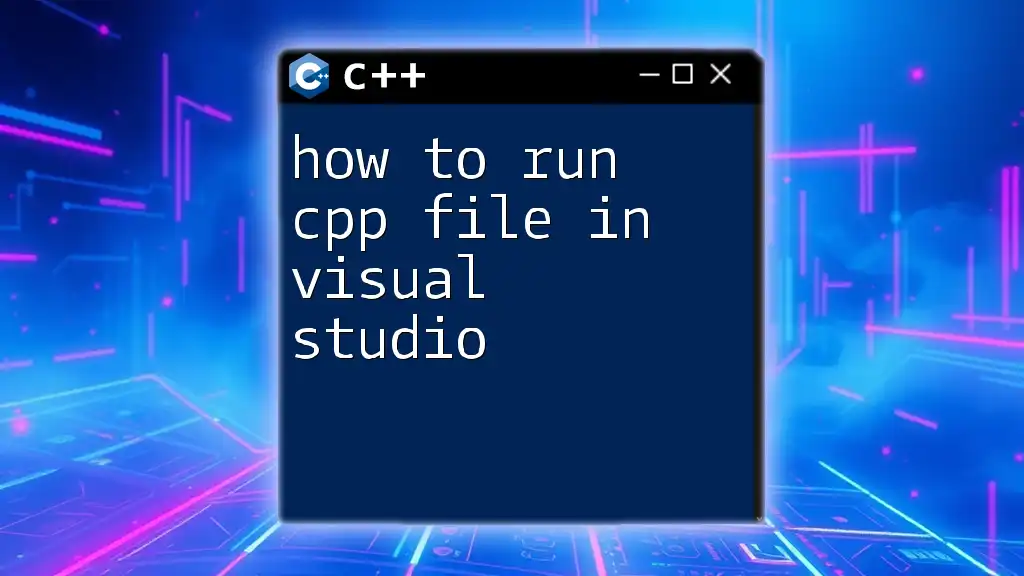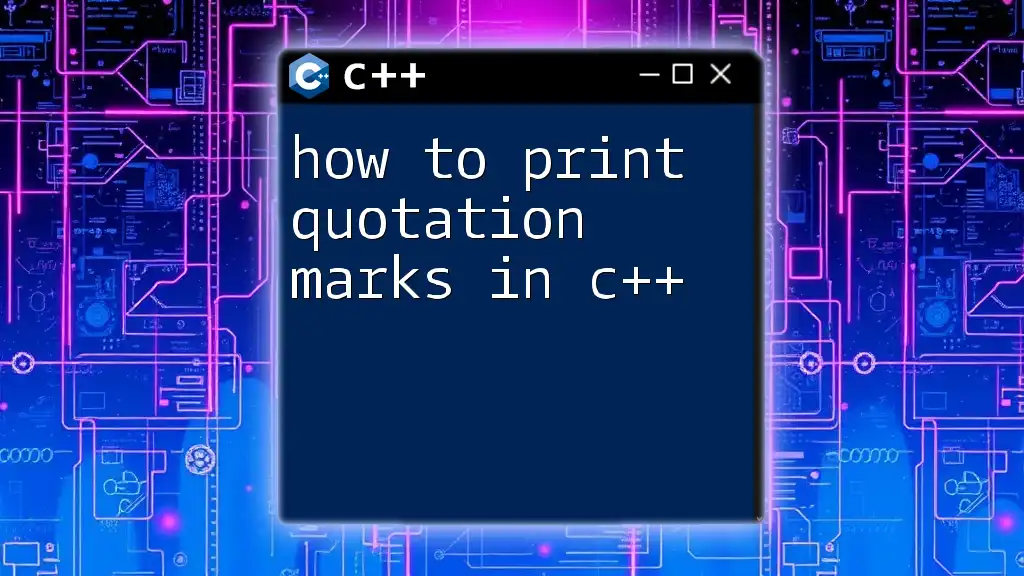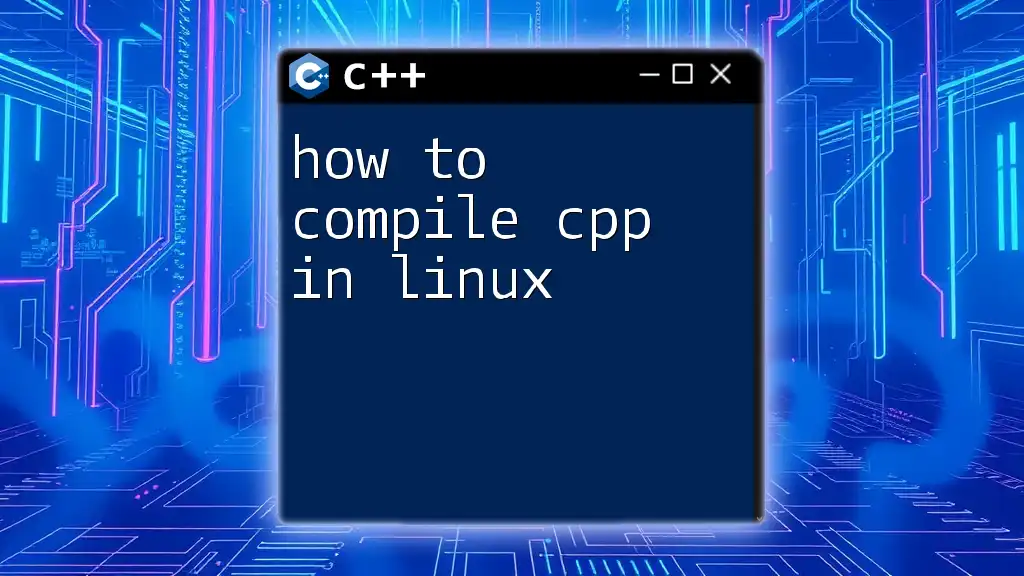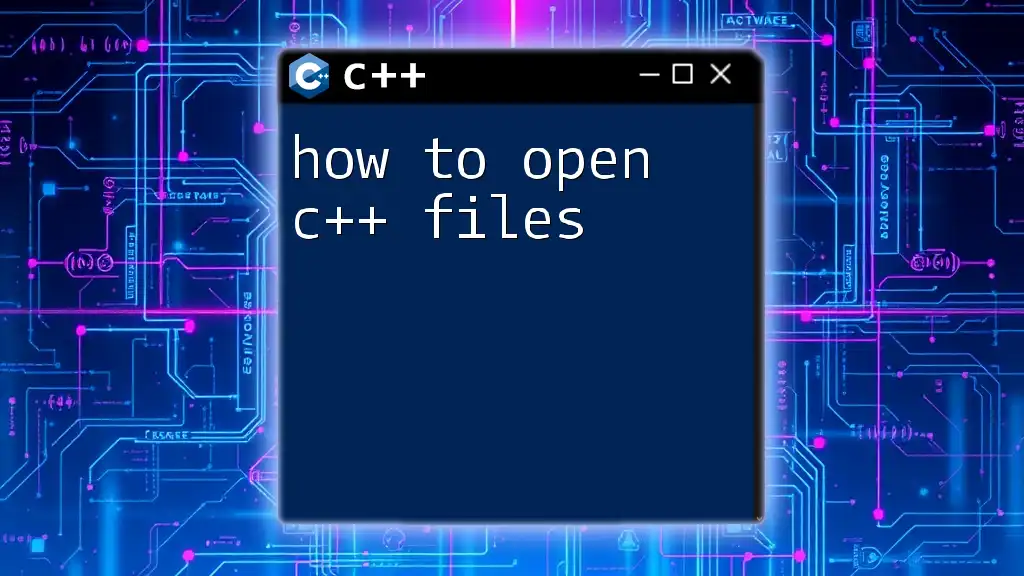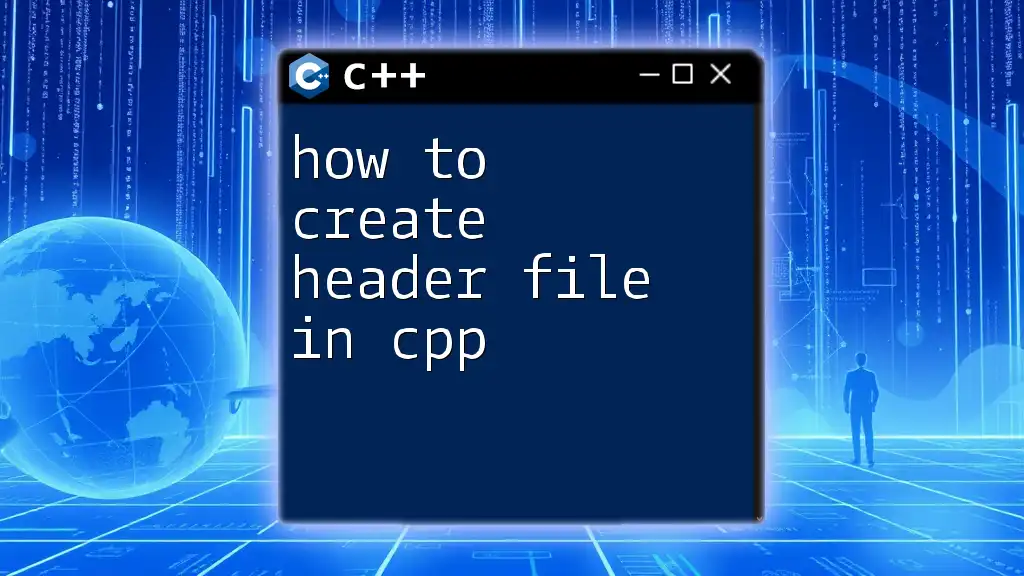To obtain CPP (C++ Programming) certification, you should complete a recognized training course and pass a standardized exam demonstrating your proficiency in C++ programming.
Here's a code snippet example to illustrate a simple C++ command:
#include <iostream>
int main() {
std::cout << "Hello, World!" << std::endl;
return 0;
}
Understanding C++ Certification
What is C++ Certification?
C++ certification serves as a formal acknowledgment of a person's proficiency in C++. It not only validates your skills but also enhances your employability in a competitive job market. Employers often seek candidates with certification as it provides assurance of their capabilities in programming with C++.
Types of C++ Certifications
There are various paths to obtaining C++ certification, typically categorized into two main groups:
Vendor-Specific Certifications: These are certification programs offered by specific organizations, such as Microsoft and Oracle. They focus on tools and technologies related to their ecosystems. For example, Microsoft's certification for C++ focuses on the Windows development environment.
Independent Certifications: These certifications come from organizations that specialize in broader programming skills rather than being tied to a specific vendor. Institutions like the International Association of Software Architects (IASA) offer C++ certifications and typically emphasize a well-rounded understanding of C++ concepts.
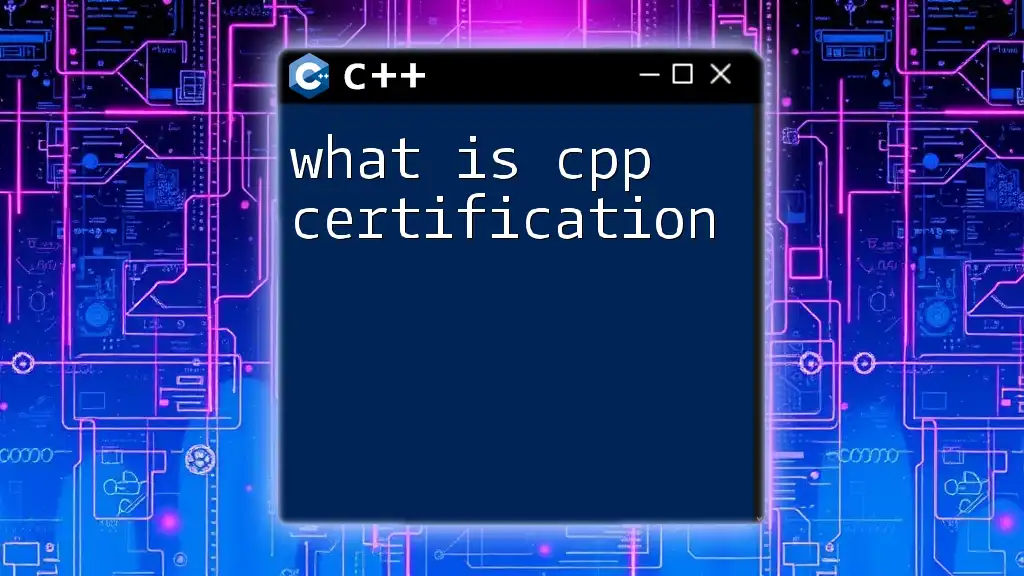
Preparing for C++ Certification
Assessing Your Current C++ Knowledge
Before embarking on the journey of obtaining a C++ certification, it is essential to evaluate your existing knowledge. Consider taking a self-assessment quiz or testing your skills through practical coding exercises. This can help you identify your strengths and areas for improvement.
Choosing the Right Certification
With multiple options available, selecting the right certification can be daunting. Consider factors like industry relevance, your current skill level, and long-term career goals. Research the requirements and focus areas of each certification to ensure it aligns with where you want to take your career.
Creating a Study Plan
Once you've chosen a certification, it's crucial to create a study plan. Set clear, achievable goals for each study session and allocate specific time blocks for learning.
Recommended Study Resources:
- Books: Consider reading The C++ Programming Language by Bjarne Stroustrup or Effective C++ by Scott Meyers as foundational texts.
- Online Courses: Platforms like Coursera and Udemy offer specialized courses tailored for C++ certification preparation.
Time management is key. Aim to balance theoretical learning with practical application to solidify your understanding.
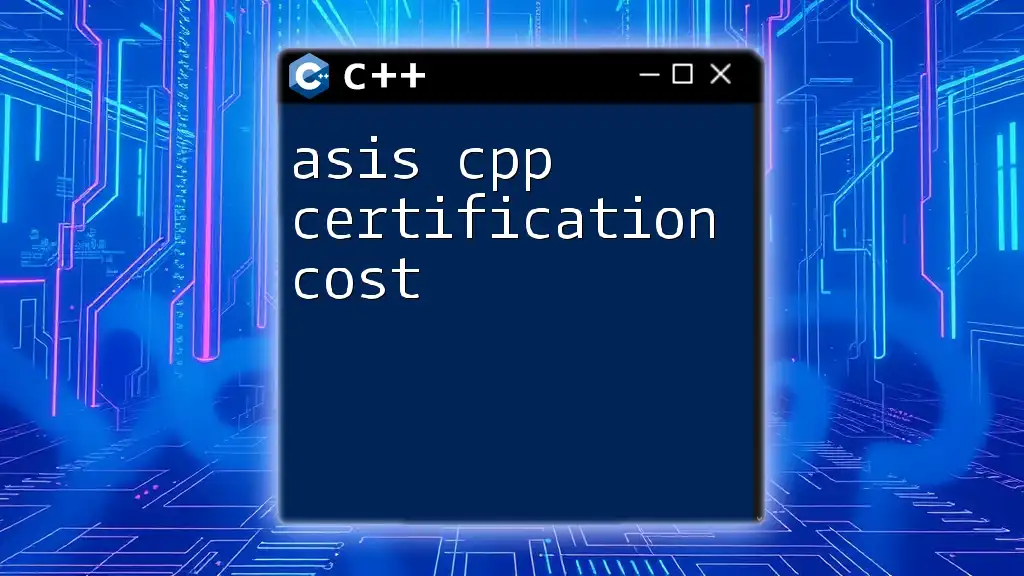
Study Resources for C++ Certification
Recommended Books and Online Courses
Investing in quality study materials will pay off during your preparation. In addition to the aforementioned books, look for specialized C++ certification courses online. Pay attention to user reviews and course outlines to ensure the material covers the required topics comprehensively.
Practice and Application
Hands-on coding practice is vital for mastering C++. Use platforms such as LeetCode or HackerRank to challenge yourself with coding problems. Regular practice will help reinforce your abilities and prepare you for the hands-on nature of certification exams.
Sample Code Snippet for Practice:
#include <iostream>
using namespace std;
int main() {
cout << "Hello, C++ World!" << endl;
return 0;
}
Writing and modifying code snippets like this one will increase your familiarity with syntax and coding conventions.
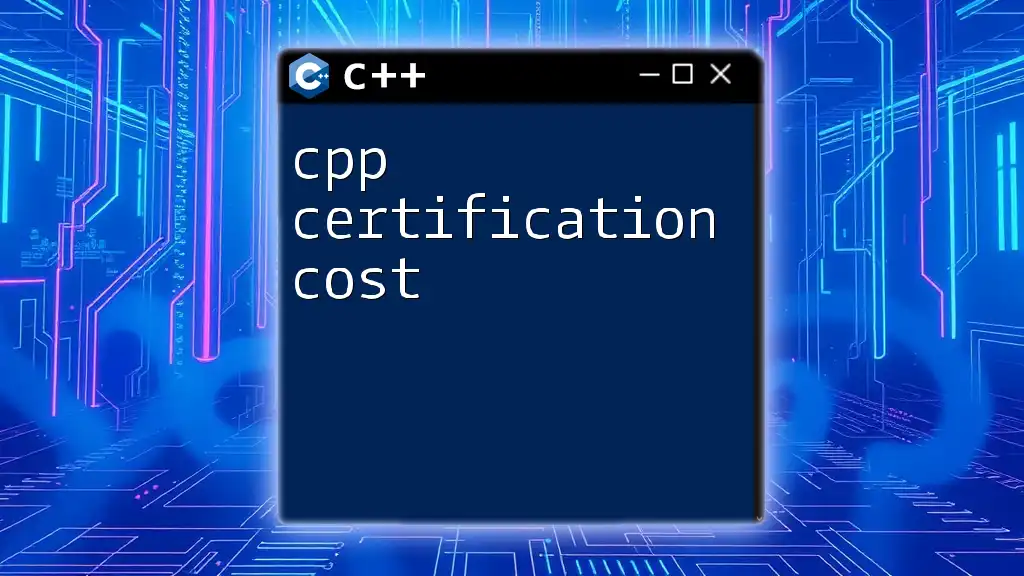
Taking the C++ Certification Exam
Understanding Exam Format
Certification exams typically consist of multiple-choice questions and coding exercises that assess your knowledge and problem-solving abilities. Familiarizing yourself with the format will help reduce anxiety on exam day.
Registration Process
The registration process generally involves selecting your desired certification and creating an account on the certifying body's website. Follow their step-by-step guidance to complete the registration, including understanding payment options and scheduling your exam date.
Tips for Exam Day
On the day of the exam, ensure you have all necessary materials prepared, including a valid ID and any mandated equipment for online exams. Review your study notes and take a few moments to relax before you begin. A focused and calm mindset can significantly impact your performance.
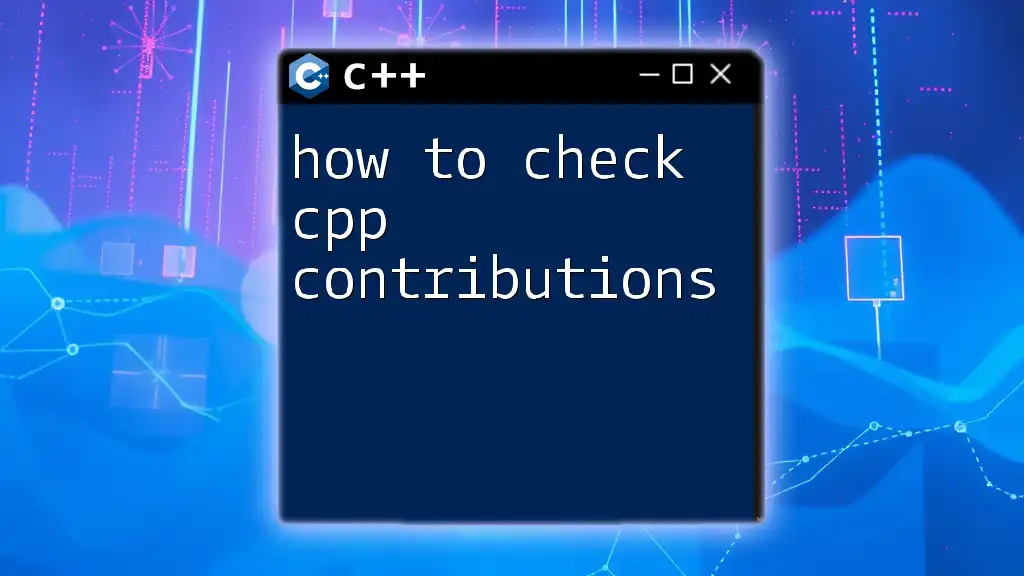
Post-Certification: Next Steps
Updating Your Resume
Once you obtain your C++ certification, it's time to showcase this achievement. Update your resume to highlight your new credential. Include specific details such as certification date and the organization that issued it. Use keywords relevant to C++ programming to increase your visibility to potential employers.
Expanding Your Skills
C++ certification is a significant milestone, but the learning should not stop there. Consider exploring advanced C++ topics such as template programming, memory management, and concurrency. These areas can help you become more adept at tackling complex programming challenges.
Networking Opportunities
Make the most of your certification by connecting with other professionals in the field. Join online communities, forums, or local C++ user groups. Engaging in discussions and sharing your knowledge can lead to valuable networking opportunities and insights.
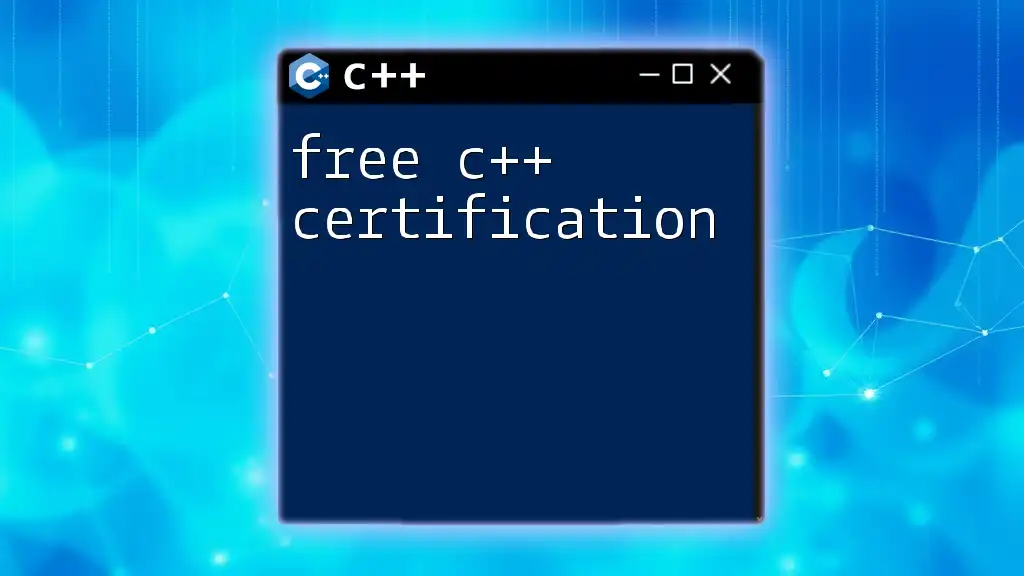
Conclusion
Reflecting on your journey to obtain C++ certification, remember the steps you took—from assessing your knowledge to studying and facing the exam, and then leveraging your new credential. This journey not only enhances your programming skills but also opens doors to new professional opportunities. Consider sharing your experience with others and, if you need additional resources or support in your C++ learning path, reach out to our community for guidance and assistance.

